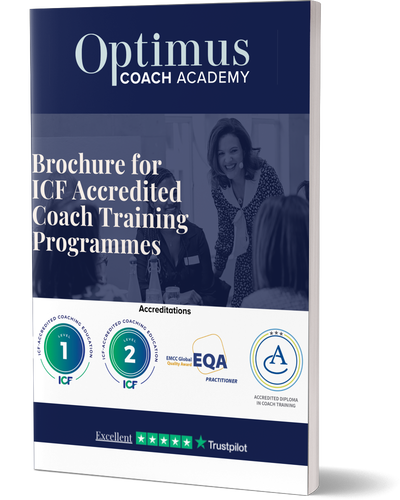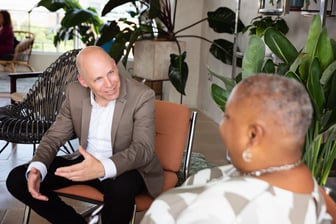Exploring The Client's Emotions
One of the core areas we can explore in coaching is emotions. Emotions are often the driving force behind behaviour, decision-making, and personal growth. By recognising and addressing your client's emotions, you can create a more supportive and effective coaching environment. Emotions form part of the who of coaching which is a core part of our holistic approach.
Equally, as coaches emotional regulation and empathy are core skills which have been linked to impactful coaching and are skills which are essential to develop and build supporting you to be more effective in your role. Self awareness is often seen as the key to coaching success for clients, it equally is for coaches as you can be aware of what is yours and what is theirs. It's one reason we include coaching supervision as standard for both diplomas as this space helps to build and develop your self awareness.
Below are key reasons why understanding and exploring your client's emotions is critical: :
- When you explore emotions they can indicate the clients nervous system state and what else is going on for them which can help create new insights for you and them
- By listening and exploring for emotions as well as words and body language you can help your clients get make connections into what is going on for them facilitating new thinking and solutions
- When your client is in a positive emotional state they can make decisions more effectively so state change can be useful in supporting decision making and working more effectively with your clients brain
- By holding space for your clients emotions you can support them to navigate what they are feeling and help them to decide on their next actions
- When a client is in a threat state it can close down their thinking and mean they find it harder to regulate their emotions, by understanding what can be going on for your clients you can support them to change their emotional state to help them build self awareness and find new solutions
Are you wondering how this can show up in a coaching session? We share some examples below which can give you clarity on how you can apply this concept to real life coaching scenarios.
Why It’s Important: Clients may feel overwhelmed by stress or emotional overload, which can impact their ability to think clearly and make decisions. Understanding these emotions allows the coach to help clients manage their stress and focus on what’s most important.
Example:
A client may be juggling work, family, and personal commitments, leading to heightened stress levels. If the coach understands that the client is feeling overwhelmed or stressed, they can address this and help the client prioritize self-care and set boundaries. When we're considering questions the most effective are forward focused and curious, for example : "What would balance look like for you?" or "How would you describe your perfect week?" These questions allow the client to consider their desired future state and by doing so changes their current state to one that is positive which can enhance decision making and problem solving.
Why It’s Important: Emotions often drive motivation. If you can identify the emotional needs behind a client’s goals, you can help them set goals that resonate more deeply and are more likely to succeed.
Example:
A client might tell you they want to lose weight, but after exploring their emotions, you discover they’re actually motivated by the desire to feel confident and improve their health, not just the number on the scale. Understanding the emotional driver—confidence—helps the coach reframe the goal in a more meaningful way. The coach might ask, “Imagine you've lost the weight: how will that make you feel?" This question (and the follow up questions which would be based on the client response) can help the client to connect to the goal on an emotional level and therefore be motivated by the new feeling state and what they will gain rather than looking at what they will lose.
Click on the buttons below to understand the importance of the other pillars we teach within our Optimus Holistic Coaching Framework.
Download Our Latest Brochure To Find Out How We Integrate Our Holistic Coaching Approach Into Our Triple Accredited Diplomas

-
Benefit 1
You will better understand what it is like to study on either of our Accredited Diplomas with Video testimonials included
-
Benefit 2
A detailed breakdown of the different modules taught in both our ICF Accredited Diplomas.
-
Benefit 3
Find out course dates and meet members of the Optimus team
To find out more about we integrate our Holistic Coaching Framework into our Accredited Diplomas click the appropriate link below

Are you interested in training to be an accredited coach ?

Are you in a leadership role looking to develop coaching skills?

Are you an existing coach looking for formal certification?